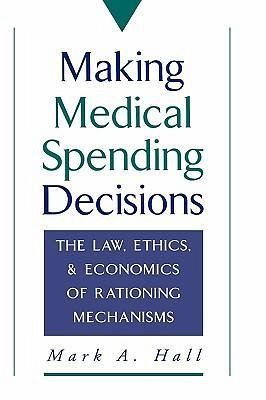
Making Medical Spending Decisions
The Law, Ethics & Economics of Rationing Mechanisms
Versandkostenfrei!
Versandfertig in 1-2 Wochen
49,99 €
inkl. MwSt.

PAYBACK Punkte
25 °P sammeln!
One of the most fundamental issues in health care delivery is who should decide which items of medical care are not worth their cost. This book is a fresh and comprehensive exploration of how health care rationing decisions are made. Unlike prior works, its focus is not on the specific criteria for rationing, like age or quality of life.












